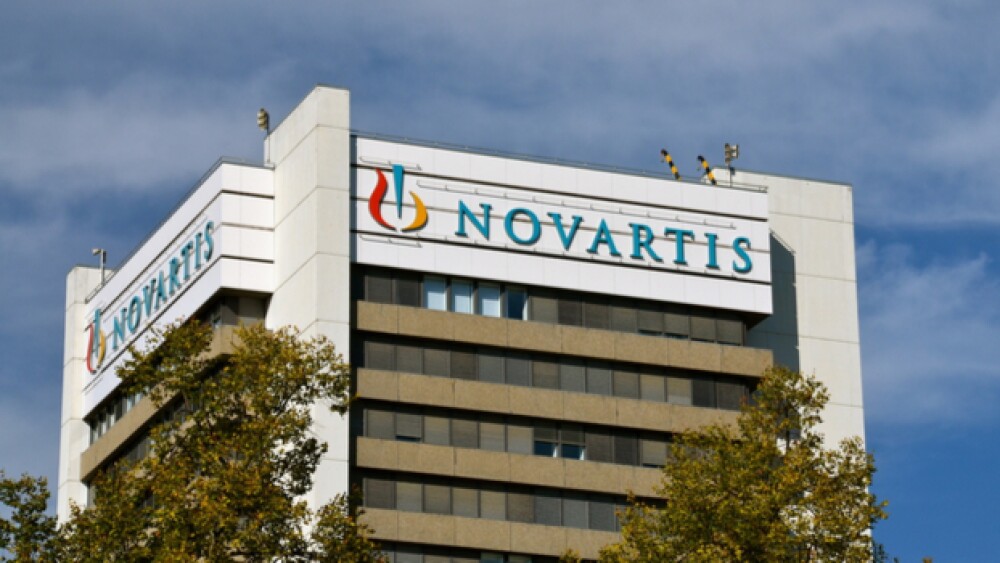Patients receiving Cosentyx showed no radiographic progression in almost 90% of PsA patients over two years. Of the patients receiving the drug at 150 mg, 66.3% had rapid and significant improvements in symptoms of the disease with axial manifestations at week 12.
lucarista / Shutterstock
Novartis released positive data from its FUTURE 5 clinical trial of Cosentyx (secukinumab) in psoriatic arthritis (psA). Patients receiving Cosentyx showed no radiographic progression in almost 90% of PsA patients over two years. Of the patients receiving the drug at 150 mg, 66.3% had rapid and significant improvements in symptoms of the disease with axial manifestations at week 12.
The trial looked at the effect of Cosentyx on symptoms of PsA, as well as inhibition of radiographic progression of the disease. The Phase III trial looked at 996 adults with active PsA. They were randomized to receive various doses of subcutaneous Cosentyx or a placebo and were evaluated at weeks 1-4 and every four weeks afterward. At week 52, patients could have their dose increased if their physician thought it appropriate. The primary endpoint was ACR20 at week 16.
Radiographic progression was measured by mean change at week 24 in van der Heijde-modified total Sharp score, looking at the erosion and joint space narrowing measured by X-rays of the hand, foot and wrist.
“Half of patients with psoriatic arthritis experience bone erosion within approximately two years,” stated Philip J. Mease, Director of Rheumatology Research at the Swedish Medical Center/Providence St. Joseph Health and Clinical Professor at the University of Washington School of Medicine in Seattle. “Left untreated, this can lead to irreversible joint damage and disability, having a substantial impact on quality of life.”
Psoriatic arthritis is a type of arthritis that affects people with psoriasis, which is marked by red patches of skin with silvery scales. Usually people develop psoriasis first and then psoriatic arthritis later, but sometimes the joint issues begin first. The primary symptoms are joint pain, stiffness and swelling. They can affect any part of the body, including fingertips and spine and have a broad range of severity. The disease affects up to 50 million people worldwide.
The disease is an autoimmune disease, where the body’s immune system attacks healthy cells and tissues. This immune response stimulates inflammation in the joints in addition to overproduction of skin cells.
Cosentyx works by inhibiting interleukin-17A (IL-17A), which is a cytokine involved in inflammation and the development of PsA, psoriasis and ankylosing spondylitis. The drug has been approved for treatment of plaque psoriasis, psoriatic arthritis and ankylosing spondylitis. Cosentyx was approved by the U.S. Food and Drug Administration (FDA) for PsA in January 2016. It’s an increasingly crowded market, however, with AbbVie’s Humira & Skyrizi, and Eli Lilly’s Taltz.
In 2018, Cosentyx brought in $2.84 billion. Sales have grown every quarter since its launch.
The company is presenting the data from the trial this week at the Annual European Congress of Rheumatology (EULAR) in Madrid, Spain.
“We are continuing to reimagine psoriatic arthritis therapy to improve patients’ lives and provide a treatment option that addresses multiple manifestations and inhibits disease progression,” stated Eric Hughes, Global Development Unit Head, Immunology, Hepatology and Dermatology for Novartis. “These data further reinforce Cosentyx as a comprehensive treatment that’s backed by over 100 studies, including five-year data across psoriasis, psoriatic arthritis and ankylosing spondylitis.”





